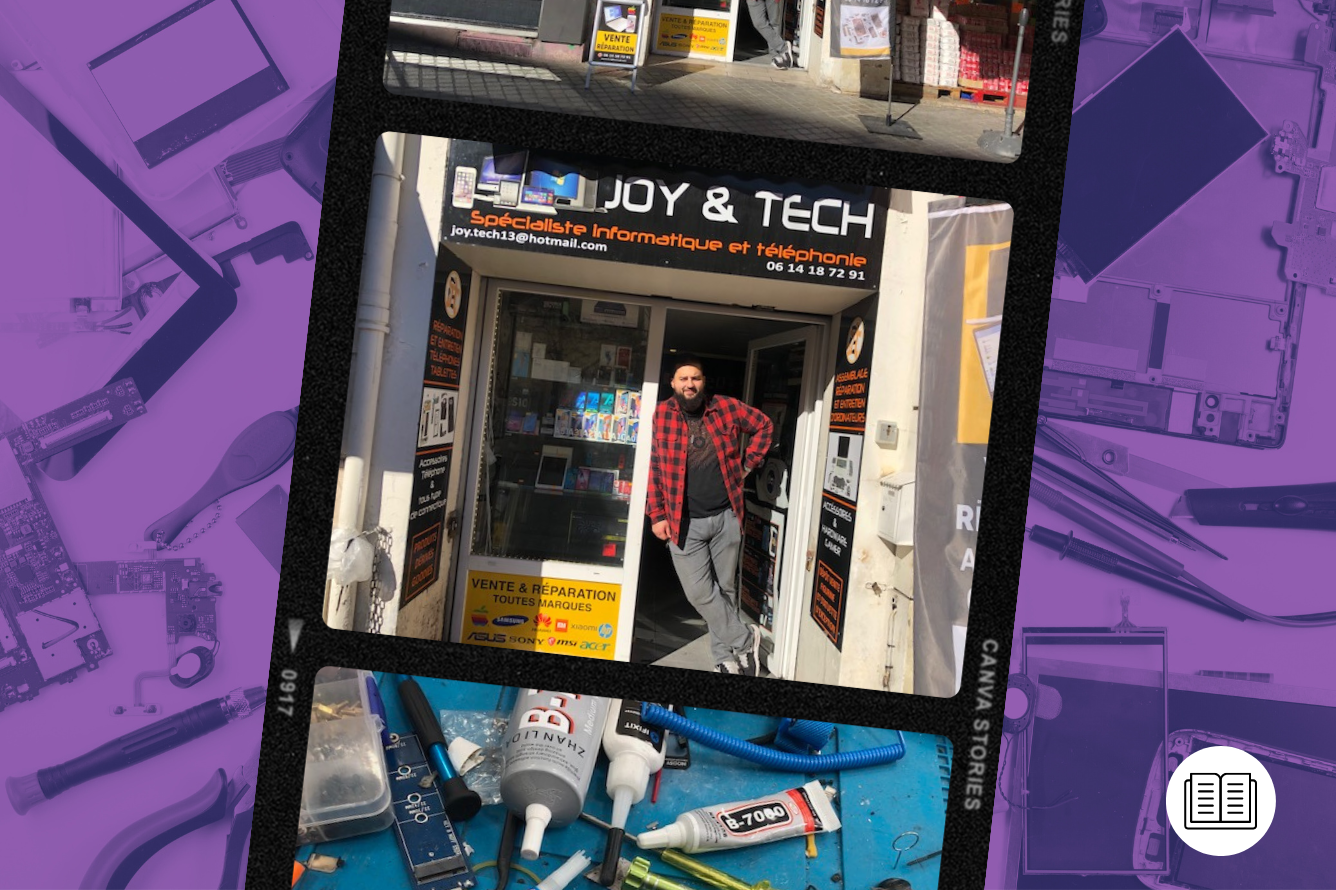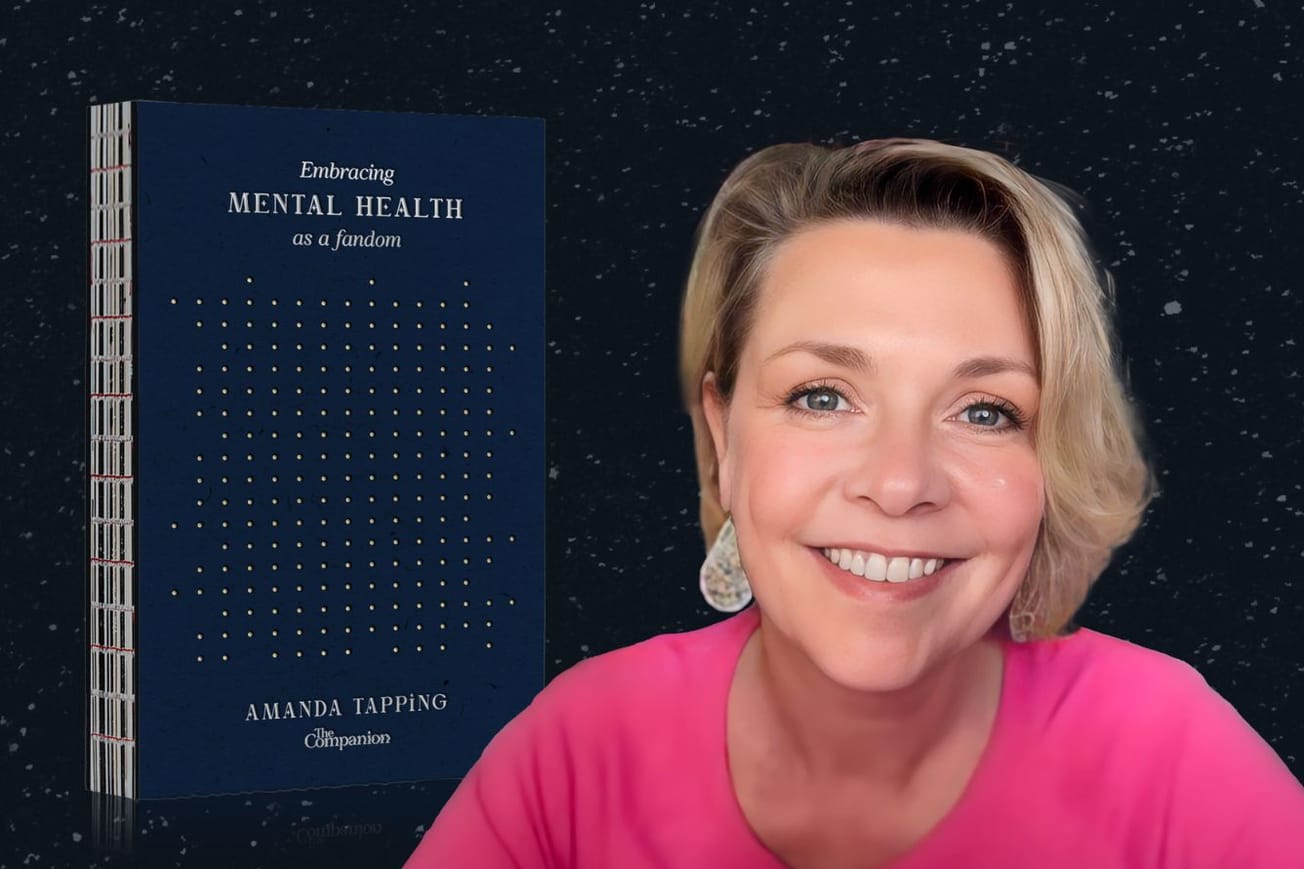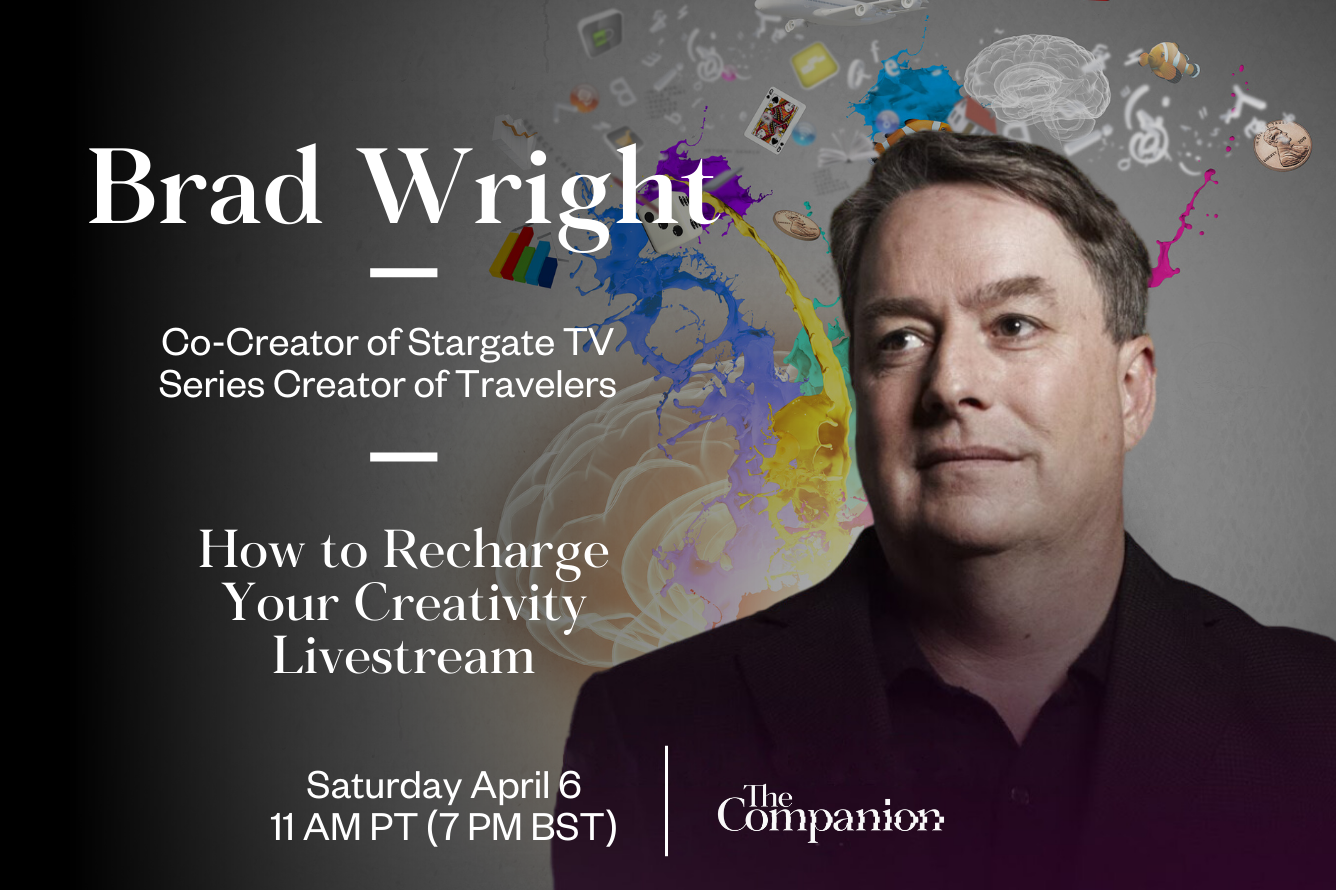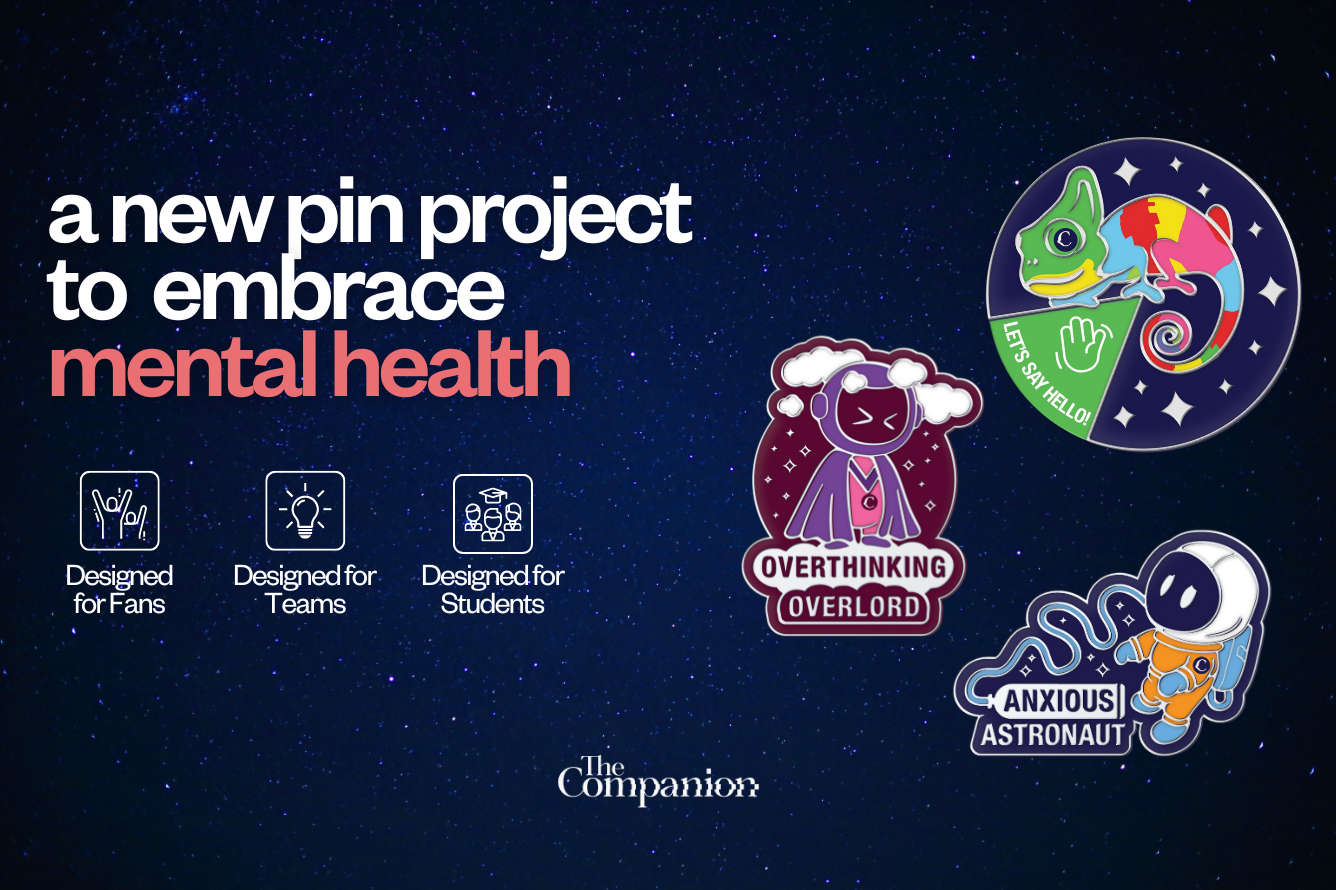My brain was sending phantom vibrations from the dead weight of my broken phone that sat coldly in my pocket. Disconnected and untraceable in my new home of Marseille, I was suddenly experiencing the undistracted sensation of being alone again.
As I wandered the Belsunce district, men leaning into other men on café terraces sat mirrored by each other’s moustaches. I dragged myself past butcher shops and boutique after boutique of phone repairers that colluded to make me feel as if I was drifting as an outsider through an alternative North African dimension.

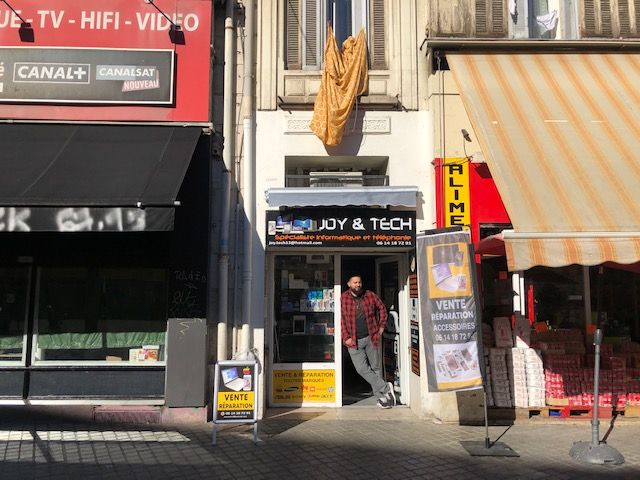

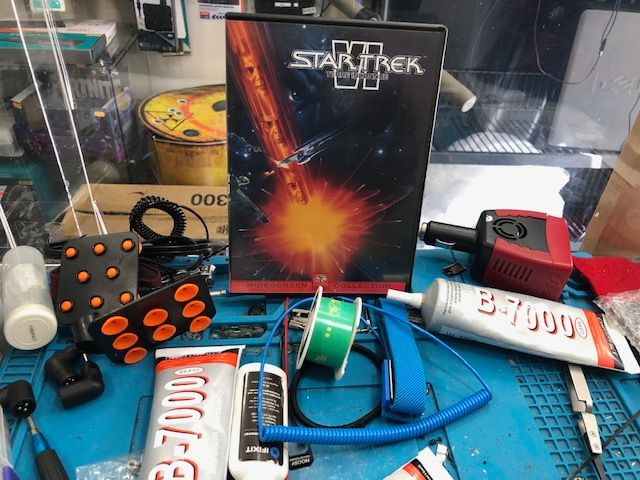

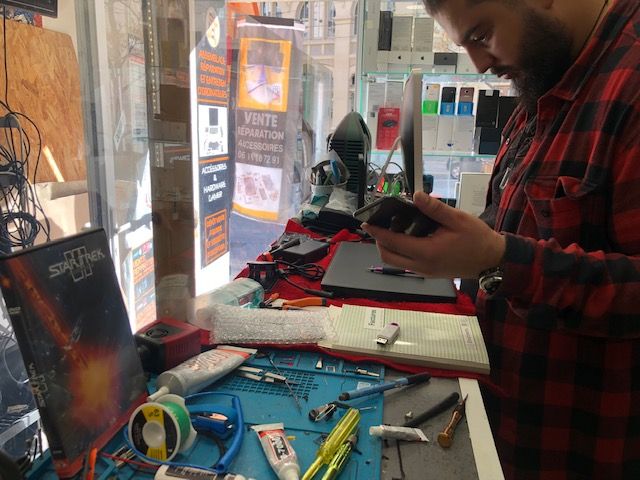
Tentative members of the local community had also come out to stare at glass cabinets filled with used iPhones and Samsungs at stupid prices but I was looking for a place that felt right; trying to tune in. I don’t know what made me stop at Joy & Tech, maybe it was the name or that it was the last shop at the end of the street but I walked into the narrow unit to find it occupied by a huge guy with a long dark beard behind the counter. A glinting religious pendant around his neck caught my eye as I got down to it, bracing myself for a haggle – hoping that I could establish an easy relationship.
Being half Moroccan I hit him with a “Salam Allekum.” Salim, the owner looked up from the laptop that he was fiddling with. “Yes, hello,” he said in English. He looked disconcerted as he eyed me up and down. “It’s my phone,” I said holding it up. It was only at second glance that I noticed that what was around his neck was a quartz or selenite crystal and that there was a Warhammer 40,000 poster pasted to the wall.
Hold on, I thought, this guy isn’t a religious Muslim… he’s a gamer. The morphing that took place in my mind at that moment has stuck with us ever since.
“You’re a fucking wizard dude.”
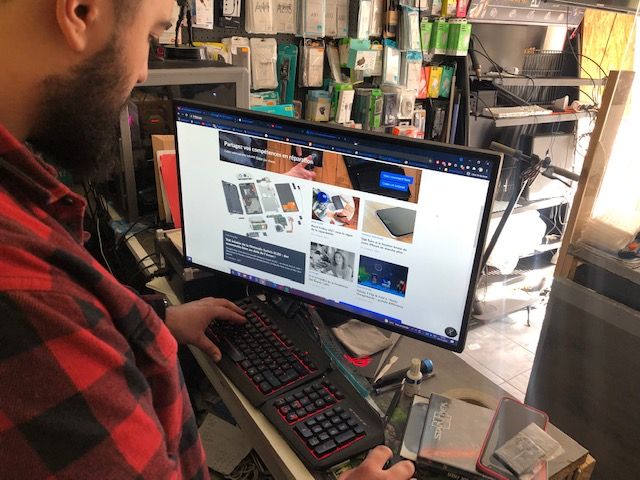

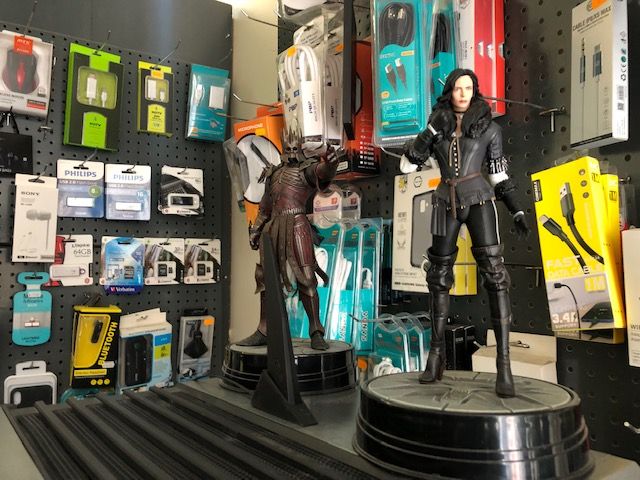
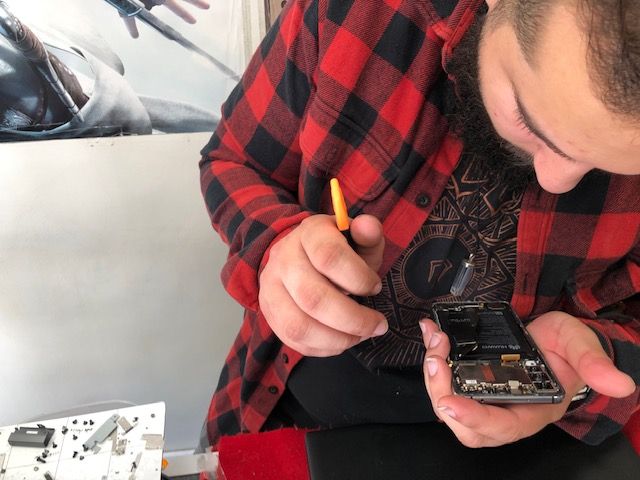
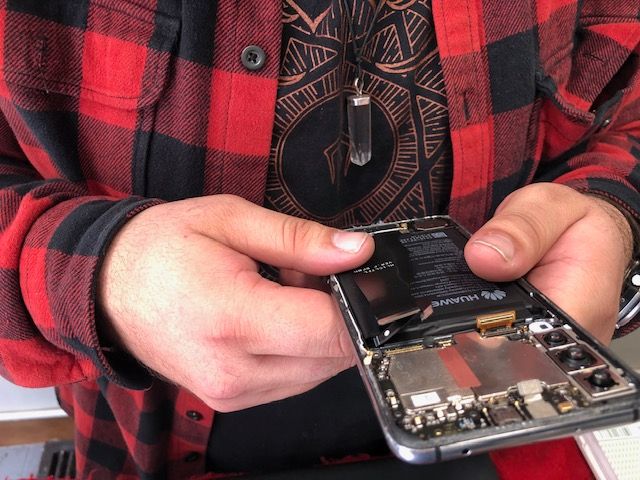
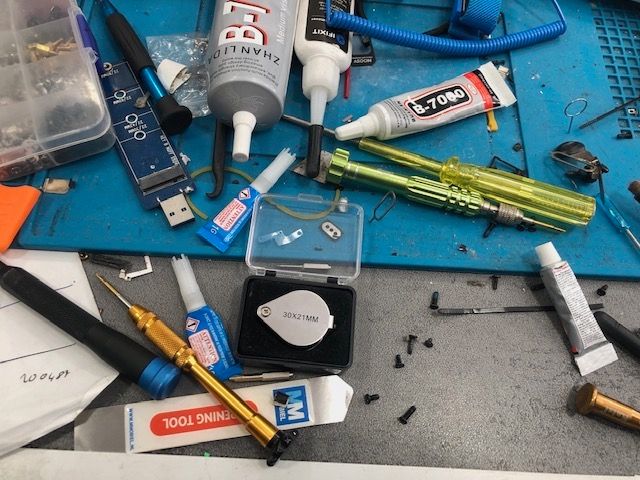
Salim’s Stargate Origins
Salim is 25 years old. Born in Marseille to Algerian parents, he has never lived anywhere but this rough Mediterranean port city. His business turns over with the philosophy that if you are fair, the people will return. Customers filter in and out of his shop, selling and buying phones, parading antique laptops, and asking many questions that are always answered with a long tirade of emotional mechanics, detail upon detail until his fees are simply accepted. This is because the fee comes attached with trust and for anyone in the murky world of phone repair anywhere, well, trust is all you have.
Salim has a profound respect for his father who handed down to his child his zeal for science through detailed concepts of outer space. “He was never able to have a formal education, but he could have been an astrophysicist,” Salim says. Growing up in Algeria in an orphanage for the children of war heroes, Salim’s father’s story of how he tuned in with friends to a six-hour radio transmission of Yuri Gagarin’s maiden voyage into the cosmos was impressed upon Salim. He evokes the crackling Russian voices of Sputnik himself as he recounts his father’s amazement. It feels like a genuine moment of love transmuted from one to another. One that made lasting change.
I put it to Salim that fixing flip phones, opening up computers, and telling people of the limitations of their equipment (“She can take no more, Capitaine.”) made him a kind of French/Algerian Scotty. He laughs it off. “I feel that you don’t own an electronic object until you can open it up and see how it works. That is my passion.”
Before legislation passed in 2006 in France, TV stations were limited to the amount of foreign series that they were allowed to broadcast to their viewers. On Saturday nights the station M6 would get their chance to unleash a world of US entertainment. “Stargate SG-1 for me was unmissable,” he says. “It allowed me to fully discover the immensity of Outer Space. As a nine-year-old, my mind was blown.”
He looks at me wide-eyed as he describes how the theme tune still gives him goosebumps and just how the abstraction of infinite time took hold of him. “Stargate talks of religion. This split of those who believe in science and those that reject it.”
I put it to him that it is obviously something that he can relate to. “Of course, I am culturally a Muslim from a modern family. I am not some guy from up the mountain or someone who needs to escape a crushing reality,” he tells me.
“Sci-fi is not just losing yourself in another world it’s understanding the world we are living in.” It’s not hard to imagine a little Salim sitting cross-legged in front of the TV consumed by the exploration of new worlds. “Stargate talks of revolution, slavery, feminism, science… even Stalinist repression. I was obsessed, there was no other choice.”
His imagination soon became ignited. “I was drawing aliens, creating my own Stargates, my own universes, my own language,” he says. “I plotted out coordinates that led me to a planet of volcanoes that spat out pizzas.”
I ask Salim what his parents made of all of this. “Well, they would unplug the television sometimes to make sure that I was doing my homework but there was never any question of it being haram [forbidden in Islamic law] if that is what you mean.” That must have been the case for some of his peers though, I suggest.
“Obviously, if I think about it, there was a girl whose family said it’s not right to watch such things because in the Qur’an it says that extraterrestrials do not exist,” he says. “And I had a friend who wasn’t allowed to come to my house or watch TV. His dad with a full beard and djellaba [traditional North African robe] would meet him at the school gates and take him straight home.”
I ask him if he can recall more precisely how this void that existed between the cultures felt. “My friend became obsessed with Stargate without even watching an episode,” he explains. “We would recreate the scenes in the playground. I would say something like – ‘Okay, you are Colonel O’Neill, now try to shoot me while I try to get through the Gate’. We didn’t care about The X-Files.”
I ask him what became of his friend. “Oh yeah, he ended up in prison,” he shrugs.
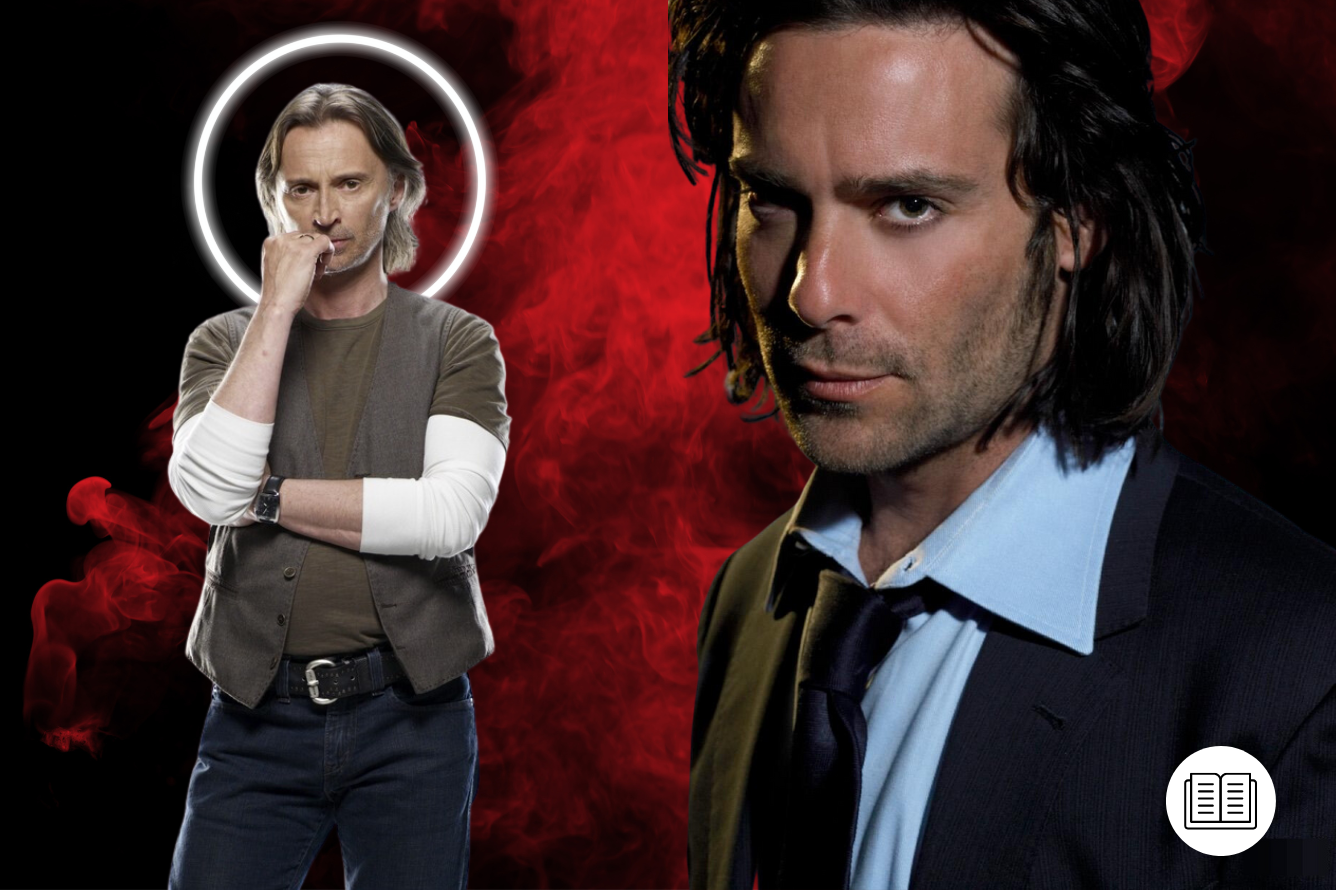
Hero Fest in Marseille
Salim asks me if I would like to attend Marseille’s own version of San Diego Comic-Con known as Hero Fest on the weekend and we arrange to meet there. I am struck by how much contrast there is to the outside world within this cavernous assembly hall where I see a salsa-dancing Spider-Man, kids dressed in Hogwarts’ uniform tossing popcorn, 5ft 5” Wolverines, zombie couples, and a huge array of sharp-edged Manga devotees. Three boys fight for a title belt WWE-style in a mini wrestling ring; hurling themselves from the ropes, half-naked men in goat-legged costumes blow rams horns at a Moroccan Doctor Who, LARPers moodily commune together, children are lost, almost static in a VR world and teenage goth girls smoking cigarettes offer FREE HUGS like a threat.
On the main stage outside, extravagant men sing classic theme songs to the flood of Japanese anime cartoons that have long been a staple of children’s TV in France. This is not the macho city that I am used to. In fact, I have never seen any of these cultures represented on the street at all.

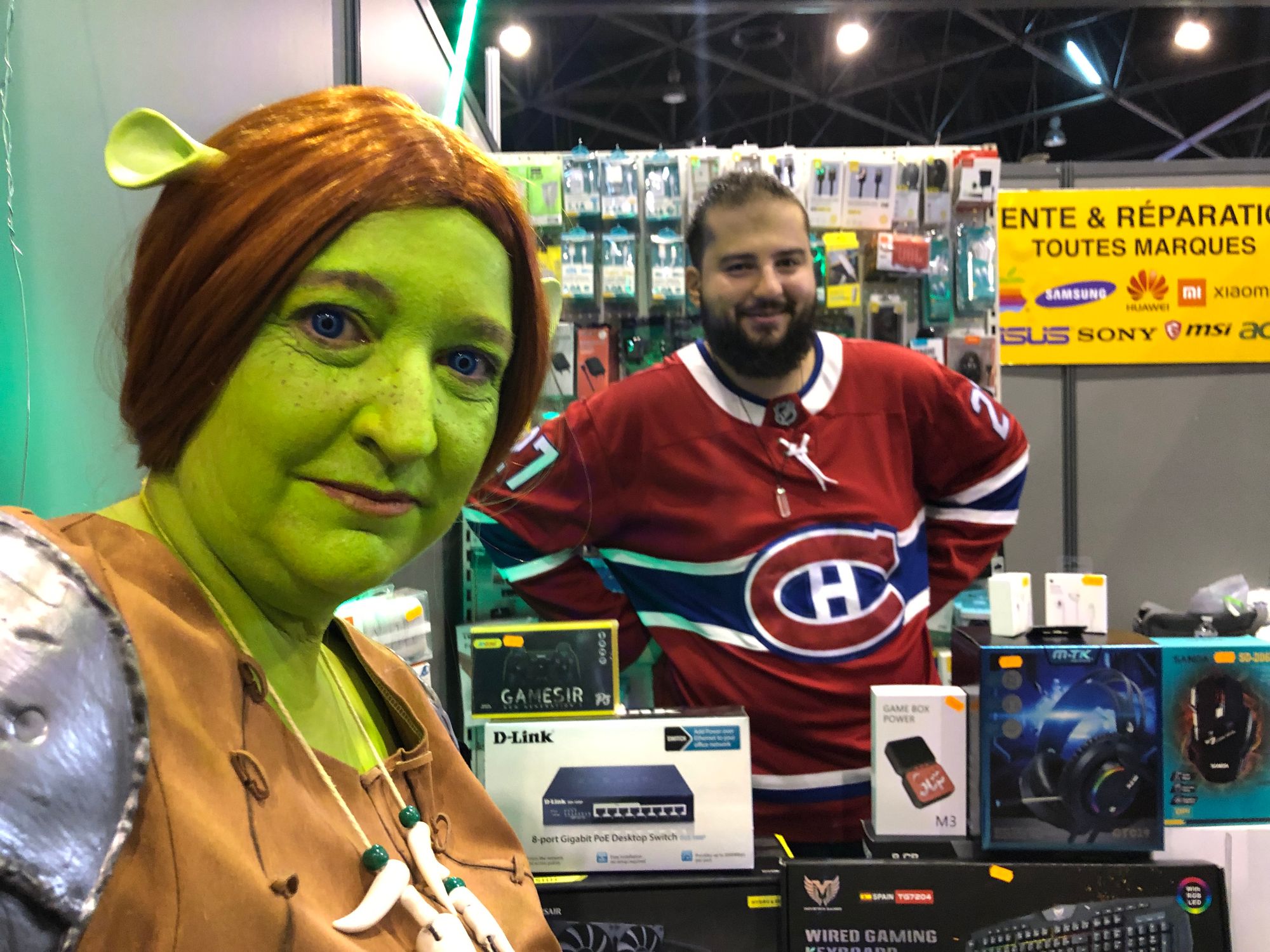



I meet Salim in the Star Trek corner as he occupies Captain Kirk’s seat with a broad grin across his face, flicking switches. “We are Ancients of the universe who ascended into the energy of the Gods,” he laughs, channeling the Ori. I drag him to the Star Wars section that has an extremely wide R2D2. “That droid is thicc,” Salim says with approval, licking his lips as he shakes hysterically. I tell him how much I was devoted to Star Wars as a child and how I understood what it felt to be trapped between two worlds. That it delivered more to me than any religion ever could.
“Tatooine is North Africa after all,” Salim says. We talk of Asimov and Philip K. Dick but each time I pull him back into a world where it all began for me. I recount my own experiences of Mos Eisley-like cantinas on the edge of the Sahara where hooded drunken men with strange faces went from slurring incoherently to threatening me in shadowy and windowless bars.
“You know what’s funny and I should be careful here,” he says, “but the first Star Wars movie I ever saw was Return of the Jedi, and do you know who really stood out for me? It was Jabba,” he says. “My uncle was this fat-assed guy who lived in luxury. That attitude; giving orders; sleeping a lot. I was like, I know men like Jabba. He even had a small nephew just like the Kowakian monkey-lizard Salacious B. Crumb that he had running around for him, fetching him watermelon or coffee.” I understand where Salim is coming from completely.
What About Djinn?
“I have to go and sell stuff on my stand but wander about and see what you find,” he says. I find myself drinking a beer sitting next to a deflated Shrek as the sun angles with 45 degrees of golden light. I have never seen Marseille more relaxed and less self-conscious. In a city where taking photos of someone is often interpreted as an act of violence, Hero Fest alternately features people who couldn’t be happier than to be snapped. There are no complex mythologies or tensions here, only openness and fun.
I stop by Salim’s stand before I leave and ask him one more thing. I say that I was thinking about the girl from his school whose parents said that the Qur’an made it clear that there was no such thing as extraterrestrials. “What about Djinns?” I ask him.
“I’m a very rational human being but I have seen people possessed by Djinns. They live in a parallel dimension to us, in the same places that we live; they are all around. Some are bad and some are just mischievous,” he says. I ask him how they reveal themselves. Salim looks at me surprised.
“They have magnetic powers. We’ve all walked into places where you can feel them on your skin.”
This article was first published on November 14th, 2021, on the original Companion website.
The cost of your membership has allowed us to mentor new writers and allowed us to reflect the diversity of voices within fandom. None of this is possible without you. Thank you. 🙂


